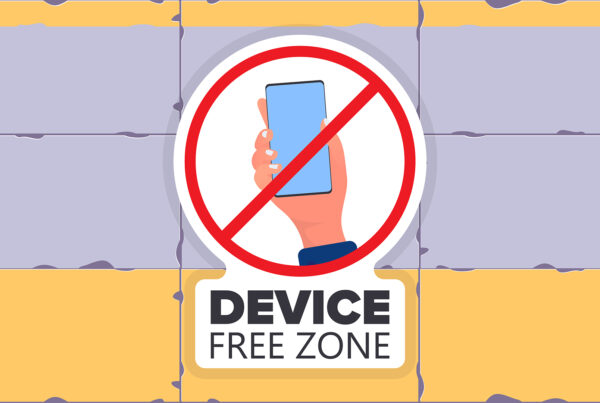The worlds’ mobile phone usage is increasing every day, and mobile communication has become a must for critical business operations of many organizations worldwide. Whether the employees work remotely or at the office itself, instant messaging solutions on their mobile devices immensely help keep many businesses running smoothly.
But many organizations still have not resolved mobile and personal phone usage in working environments because of the challenges they face in meeting mobile compliance requirements. However, prohibiting or limiting their usage is not difficult for remote working employees. Thus, it is high time for firms to look at robust technologies that allow employees to use mobile phones while conforming to regulatory standards.
Risks and challenges of using mobile phones in working environments
While mobile phones allow businesses to continue operations from anywhere, regulatory authorities like FCA have concerns about the problems they could cause. Therefore, many organizations hesitate to allow their employees to use mobile phones at work.
For example, many trading floors stick to a mobile-free environment because they see mobile phones as devices that can cause market abuses and serious security issues. Bad actors can leak sensitive information and get involved in insider trading for financial gains. Other than usual voice and video calls, information leakages can happen via instant messaging solutions employees regularly use on their mobile devices such as WhatsApp, Signal, or Telegram. Because of these concerns, financial firms worldwide are still hesitant to allow mobile phones on trading floors despite the value they can bring to the businesses.
Until recently, many Banks have seen private mobile phones as a ‘compliance disaster area.’ because employees can engage in illegal activities like passing sensitive information and downloading unnecessary content from the web that could disrupt their work. One such incident that proved this concern was right is the Christopher Niehaus case where he used WhatsApp to boast to his friend about some deals and the money he could make. During that conversation, he inadvertently revealed confidential client data.
Also, several Banks so far have faced fines of more than $5.6 billion because of illegally making profits by altering exchange rates via exclusive chat rooms.
Why do firms need to allow mobile phones?
But firms can’t control how phones are used by employees while working from home. Organizations that allow employees to work from home keep increasing, and it is one of the major benefits organizations can offer for their employees in many situations. Especially with the current covid-19 pandemic worldwide, employees need to have the flexibility of working wherever they want. Firms have identified this requirement and have set up a proper working environment and access for their home employees.
Some surveys have indicated that people would embrace a hybrid working model after the covid-19 pandemic is over, or its threats become reduced. Therefore, firms cannot solely rely on mobile phone usage at offices; instead, they need a safer way to allow mobile phones in remote working environments.
Regulators are planning for home visits.
As financial firms are now moving to hybrid working models where using mobile phones for remote work could pose serious threats, regulators are now planning to run home audits. They basically need firms to prove that remote working does not lead to financial crimes or market abuse. According to a Bloomberg report, the Financial Conduct Authority (FCA), known as the U.K.’s markets watchdog, plans to visit remote employees working in the trading and banking sectors.
Further explaining their intentions, the FCA has issued a warning for regulated firms that they have the authority to visit any address, including employees’ homes. The visits will become ongoing supervisions, not just as a part of a regular investigation process.
FCA Regulations on maintaining Mobile Compliance while working from home
Because of the above-discussed risks and challenges, regulatory authorities have enforced new regulations on using secure instant messaging solutions while working from home. According to FCA mobile compliance requirements for working from home during the covid-19 pandemic, financial firms must record all the relevant communications of remote employees, including voice calls and text messages. In addition, FCA requires firms that allow WhatsApp to exchange information on trading lists and other trading communications with clients to record and monitor WhatsApp communications.
How TeleMessage helps firms achieve mobile compliance while working from home?
Because organizations can face such regulatory audits at any time, it is time to allow employees to use mobile and chat tools while keeping the organization in compliance. Mobile devices can be the main medium of market abuse and sensitive data leakages without continuous monitoring and using only soft organizational policies cannot prevent such risks. They need to update their policies to match new communication recording needs, train their employees, and always ensure they meet the compliance requirements.
Organizations need a robust mobile communication recording and archiving solution that can capture voice calls and monitor txt messages to meet regulatory compliance requirements for home workers. Also, firms can allow employees to use instant messaging solutions like WhatsApp and WeChat for trading activities. It means they require text messaging compliance and centralized mobile archiving solutions that fulfill archiving requirements of various regulatory bodies such as FCA archiving, SFC archiving, and FOIA archiving requirements.
For all the mobile communication recordings, retention, archiving, and e-discovery requirements, TeleMessage Mobile Archiver is the best solution organizations can have. An enterprise messaging app enables any organization to record mobile messages, capture voice calls, and archive them to achieve communication compliance. Even if employees use WhatsApp, WeChat, or Signal secure mobile messaging applications, TeleMessage has archivers identical to their regular applications. It enables employees to work from home using their private mobile phones while complying with regulatory standards.
TeleMessage mobile archiver solutions have been designed to meet various regulatory compliances, Including MiFID II, SEC, Dodd-Frank Act, MAS, SFC, and more. If the regulatory bodies need to access the recorded data, it provides fast access to them, facilitating faster audit trials, investigations, and legal litigations.
With TeleMessage mobile recording and archiving solutions, organizations do not have to worry about regulators’ visits to home because everything is there to comply with their regulatory requirements.
About TeleMessage
TeleMessage captures and retains mobile content, including mobile SMS messages, voice calls, WhatsApp, and WeChat conversations from corporate or BYOD mobile phones to ensure compliance with various data protection regulations. The messages are securely and reliably retained within TeleMessage servers or forwarded to your choice of archiving data storage vendor.
Our mobile archiving products securely record content from mobile carriers and mobile devices for various ownership models (BYOD, CYOD, and employer-issued). With our multiple archiving solutions, you can always find the right tools or blend for your requirements:
- Network Archiver
- Enterprise Number Archiver
- Android Archiver
- WhatsApp Archiver
- WeChat Archiver
- Signal Archiver
- Telegram Archiver
TeleMessage offers cross-carrier and international mobile text & call archiving for corporate and BYOD phones. Visit our website at www.telemessage.com to learn more about our mobile archiving products.






